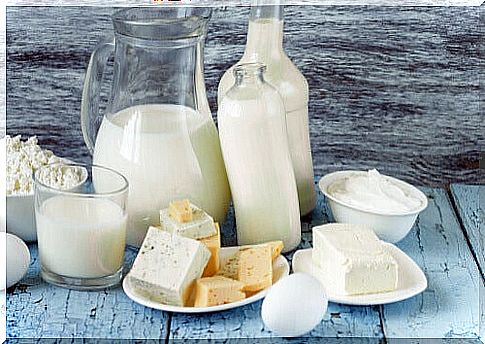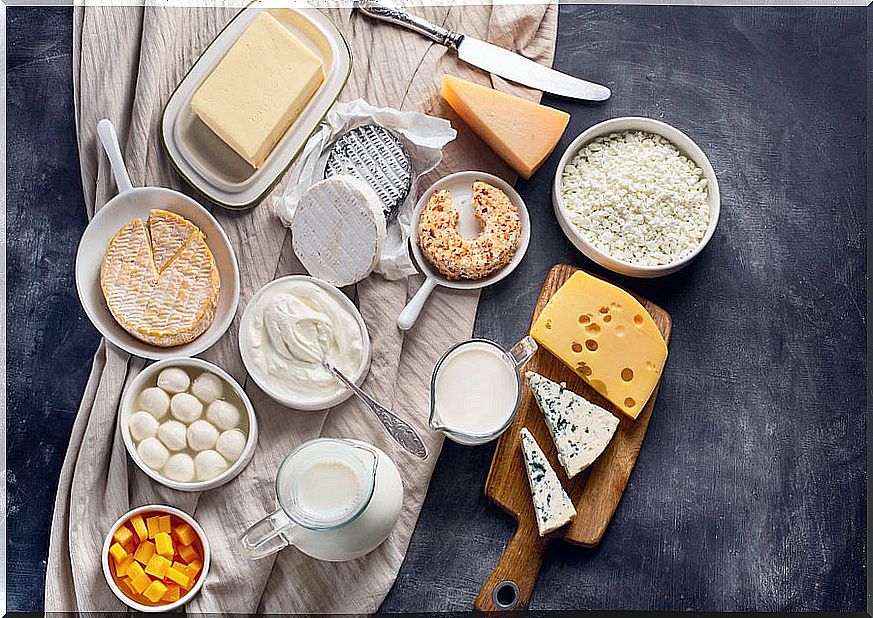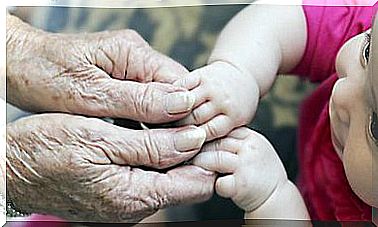Is Dairy Necessary In Children?

What happens if your child does not drink milk? Could it be that it does not grow well due to the calcium provided by dairy products? Many parents worry that their children do not want, or cannot, drink dairy, thinking that this deficiency will cause growth problems and even osteoporosis in the future. In this article we solve these doubts and we will check if dairy products are really necessary in children’s nutrition.
Dairy in the diet of children
It is clear that breastfeeding is the best food that we can give our children exclusively up to 6 months of age, and together with complementary feeding up to 2 years or more, as stated by the World Health Organization (WHO ).
Starting at 12 months, when children no longer drink as much milk, how much calcium do they need to be healthy? According to Spanish Federation of Nutrition, Food and Dietetics Societies ( FESNAD), an intake of:
- 0-6 months, 400 milligrams (mg) of calcium.
- 7-12 months, 525 mg of calcium.
- 1-3 years, 600 mg of calcium.
- 4-5 years, 700 mg of calcium.
- 6-9 years, 800 mg of calcium.
A glass of milk provides about 300 mg of calcium, and 100 grams of aged cheese has between 800 and 1000 mg of calcium.

During the first 20-30 years of life is when we will store almost all the calcium in the body. Bone mass will increase throughout childhood and will reach its peak of maximum mineralization between the ages of 20 and 30. From that age on, we will pull the reserves that have been accumulating in those years.
In addition, calcium absorption is greater during puberty, just at the time of ‘growth’. Reaching a peak in adequate bone mass in this period significantly reduces the risk of osteoporotic fractures in adulthood.
The more dairy children eat, the better?
It is true that milk and dairy products are the largest source of calcium for most people, in fact they provide 65% – 72% of the calcium in the diet. Although milk is not essential after 12 months of life, it is still an excellent food, especially as a source of calcium.
In fact, instead of talking about ‘consumed calcium’ we should talk about ‘absorbed calcium’. And it is that the amount of calcium that a food has is not as important as the possibility that our body has of absorbing it.
Therefore, answering the question, the more dairy children eat, the more they will grow, as this Advances in Nutrition study shows , nor will they have a lower risk of fractures as adults.
In addition, in some children, what happens is that by consuming an excess of dairy products, they displace other types of fundamental foods in their diet (vegetables, legumes, fruits …).
My child does not like dairy, what can I do?
It is true that our bones need calcium to form and maintain themselves properly, but milk and its derivatives are not the only foods that contain this mineral. Vegetables such as broccoli, chard or spinach also contain calcium.
A plate of broccoli provides the same amount of calcium as a glass of milk. But it is also that it is absorbed approximately twice as much, therefore, a plate of broccoli is equivalent to two glasses of milk.
Other foods rich in calcium are fish that are eaten with bones, such as sardines or anchovies, also sea bream, salmon as well as some nuts (almonds) and legumes (chickpeas, soybeans). Also in the seeds, especially those of sesame, but we must crush them previously to be able to take advantage of all their nutrients.

But we must be careful so that calcium gets to be deposited in our bones. It is very important to note the following:
- Cooking. If they are chopped and boiled for a long time, some of the calcium and other nutrients such as vitamin C can be lost.
- Vitamin D. Essential for calcium to be deposited in the bones. Most of the vitamin D we need is from sun exposure. It is important to know that in skimmed milk calcium is not lost, but vitamins D and A. Therefore, in children it is recommended that they drink whole milk.
What about vegetable drinks?
These are not nutritionally affordable with milk. Apart from the calcium-fortified beverages, the rest only serve as culinary substitutes for cow’s milk.
They do not have probiotics in their composition, essential for the proper functioning of the digestive system, as stated in a study published in 2017.
Above all, soy drink is not a good option when we talk about substitutes for children, since its modern production procedure makes it difficult to digest and maintains a greater amount of isoflavones, which we do not know about its long-term effect, such as It is shown in the Food Chemical article .
So is dairy necessary for children?
Dairy is not bad in itself, what is bad is the abuse that is made of it, which can be excessive, especially if ultra-processed dairy with sugar is ingested.
The important thing is that a healthy diet supplements the amounts of calcium without including dairy excessively and, if your child does not consume dairy for any reason, you have already seen that there are other foods rich in calcium. What is even more important is physical exercise, as it is the main factor for proper bone formation.










